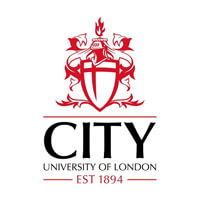fees waived
Biomedical and Healthcare Engineering, BEng (Hons)
City, University of London, United Kingdom
Subject ranking
UK / Guardian 2025 2nd
UK / Times 2025 5th
UK / ARWU 2024 15th
Costs
food & rentS$25.1K / year
Entry requirements
Scholarships
Limited quantity
Information
Code
Intakes
Website (External)
Programmes
Information
Duration
2028
This biomedical and healthcare engineering degree prepares graduates for careers in hospitals, research facilities, educational institutions, and regulatory agencies by applying science, engineering, and medicine to medical technologies. It begins with a foundation in general engineering and health sciences, advancing to specialized topics like biomedical instrumentation, biomaterials, biomechanics, and biosignal analysis. Learning combines theoretical, experimental, and computational methods, emphasizing critical thinking, teamwork, and communication through projects.Students benefit from industry collaborations, NHS involvement, world-class facilities, and optional placements to enhance employability. The curriculum covers mathematics, electronics, anatomy, and advanced engineering across three years, with assessment via coursework, exams, and projects. Graduates enter fields such as medical technology, academic research, healthcare, finance, or management, with opportunities for professional accreditation like Chartered Engineer status.
You will develop a strong technical background in the key subjects of biomedical and healthcare engineering, with management studies and engineering design also integral parts of the course. The Engineer in Society is an innovative theme across each year. We introduce you to the economic, social and technical context where engineers work, and develop your social responsibility, knowledge, and topical engineering skills. Year 1 Build a firm foundation in mathematics, engineering, physics, electronics and computing – including anatomy, physiology and pathology. -The Engineering in Society - Social responsibility (15 credits) -Anatomy and Physiology (15 credits) -Introductory Mathematics and Programming (15 credits) -Electronics - including circuits, digital and analog electronics (15 credits) -Introduction to programming (15 credits) -Engineering Science (15 credits) -Mathematics 1 (15 credits) -Introduction to Thermodynamics and Fluid Mechanics (15 credits) Year 2 Learn to apply engineering analysis to simple but representative components of engineering systems. You will study biomedical design and advance your knowledge of biomedical instrumentation, biomaterials, biomechanics and rehabilitation engineering. -The Engineer in Society: Sustainability and Circular Economy (15 credits) -Mathematics 2 (15 credits) -Engineering Design 2 (15 credits) -Biomedical Instrumentation (15 credits) -Engineering Based Data Analysis (15 credits) -Biomaterials (15 credits) -Biomechanics & Rehabilitation Technology (15 credits) -Electrophysiology & Cardiorespiratory Measurements (15 credits) Year 3 Deepen your specialism with topics including biosignals, biosensors, medical physics and imaging, physiological fluid mechanics and biological system modelling. Your individual research project will consider the design, development and evaluation of a healthcare technology. -Individual project (30 credits) -Biomedical and Healthcare Engineering in the society (15 credits) -Biomedical Signal Processing (15 credits) -Biomedical Sensors (15 credits) -Biological Systems Modelling (15 credits) -Medical Physics and Imaging (15 credits) -Physiological Fluid Mechanics (15 credits)

